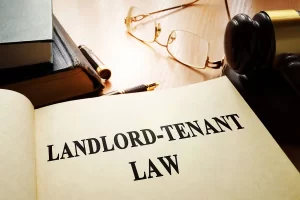Navigating the intricate landscape of tenant rights as a landlord in Chicago can be daunting. While prioritizing maximizing returns, it’s crucial to ensure compliance with regulations to avoid costly legal disputes. Understanding tenant protections is key to fostering a harmonious rental environment that benefits both parties. So, what are these protections, and how can landlords fulfill their obligations effectively? A deep comprehension of Chicago’s unique rental laws is indispensable for maintaining a profitable and peaceful landlord-tenant relationship.
Key Takeaways
- Understanding Chicago tenant rights helps landlords navigate regulations, minimize liabilities, and maximize returns on their investments.
- Complying with security deposit regulations, including return procedures, is crucial for maintaining a positive landlord-tenant relationship.
- Familiarity with eviction procedures and timelines ensures landlords follow the proper process, avoiding costly legal disputes.
- Providing written notice for repairs and entry, as required by law, helps prevent retaliation claims and promotes a harmonious rental environment.
- Knowing tenant protections, such as quiet enjoyment and habitability, enables landlords to create a mutually beneficial experience and avoid legal issues.
Navigating Chicago Rental Laws
In the city of Chicago, landlords must familiarize themselves with the complex web of rental laws that govern the landlord-tenant relationship, as failure to comply can result in costly legal disputes and reputational damage. Chicago landlord-tenant legal rights dictate specific regulations regarding security deposits, lease agreements, and maintenance responsibilities. Understanding these laws is essential for landlords seeking to maximize returns while minimizing potential liabilities.
Understanding Tenant Protections
Five key areas of tenant protection in Chicago’s landlord-tenant legal rights framework are essential for landlords to grasp, as they impact the dynamics of the rental relationship. These areas include quiet enjoyment, habitability, notice of entry, subleasing, and retaliation protections. Understanding these provisions is vital for landlords to maintain a positive and compliant rental environment, ensuring a mutually beneficial experience for both parties.
Security Deposit Regulations
Chicago’s security deposit regulations, a critical aspect of the city’s landlord-tenant legal rights framework, provide specific guidelines for landlords to follow when collecting and returning deposits. Key requirements include:
- Deposits must be returned within 45 days of tenant move-out
- Landlords must provide a written receipt for deposits received
- Deposits cannot exceed two months’ rent
Eviction Procedures in Chicago
The eviction process in Chicago is governed by the Illinois Eviction Act and the Chicago Residential Landlord and Tenant Ordinance, which outline specific procedures landlords must follow to legally terminate a tenancy. Landlords must provide written notice, stating the reason for eviction, and follow strict timelines for filing eviction lawsuits and serving tenants with court summons.
Chicago Landlord-Tenant Legal Rights
Landlords and tenants in Chicago must navigate a complex web of regulations, with both parties entitled to specific rights and protections under the city’s landlord-tenant ordinance. Understanding Chicago landlord-tenant legal rights is essential for a successful rental experience. Key aspects include:
- Security deposit regulations and return procedures
- Notice requirements for repairs and entry
- Protections against retaliatory conduct
Frequently Asked Questions
Can a Landlord Restrict Tenant Guests or Visitors in Chicago?
In Chicago, landlords have limited authority to restrict tenants’ guests or visitors, as the Chicago Residential Landlord and Tenant Ordinance (CRLTO) prioritizes tenants’ right to quiet enjoyment and privacy in their rented premises.
How Do I Handle a Tenant’s Abandoned Property in Chicago?
In Illinois, landlords must follow specific procedures when handling abandoned property, including providing written notice to the tenant and storing the property for 30 days before disposing or selling it.
Can I Require Renters Insurance From My Chicago Tenants?
In Chicago, landlords can require renters insurance as a lease term but must provide written notice to tenants explaining the requirement and its benefits, ensuring transparency and compliance with local regulations.
What Is the Process for Handling a Tenant’s Death in Chicago?
Upon a tenant’s death in Chicago, landlords must follow a specific protocol, including notifying the authorities, securing the property, and complying with Illinois laws regarding the disposition of the deceased’s personal property and lease termination.
Are There Any Specific Requirements for Landlord Entry Notices in Chicago?
In Chicago, landlords must provide written notice at least 48 hours prior to entering a rental unit, specifying the date, time, and purpose of entry, unless there is an emergency or the tenant has abandoned the premises.
Conclusion
Optimizing rental returns in Chicago requires a thorough understanding of tenant rights and regulations. By grasping key concepts such as peaceful enjoyment, livability, and protection against retaliation, landlords can guarantee compliance, cultivate positive relationships, and minimize legal disputes. Adhering to security deposit rules, eviction processes, and landlord-tenant legal rights is essential for a harmonious rental experience and maximum returns. A detailed knowledge of Chicago’s rental laws enables landlords to navigate the intricate landscape and make informed decisions.
You May Also Love to Read: How Do Real Estate Agents Get Listings


